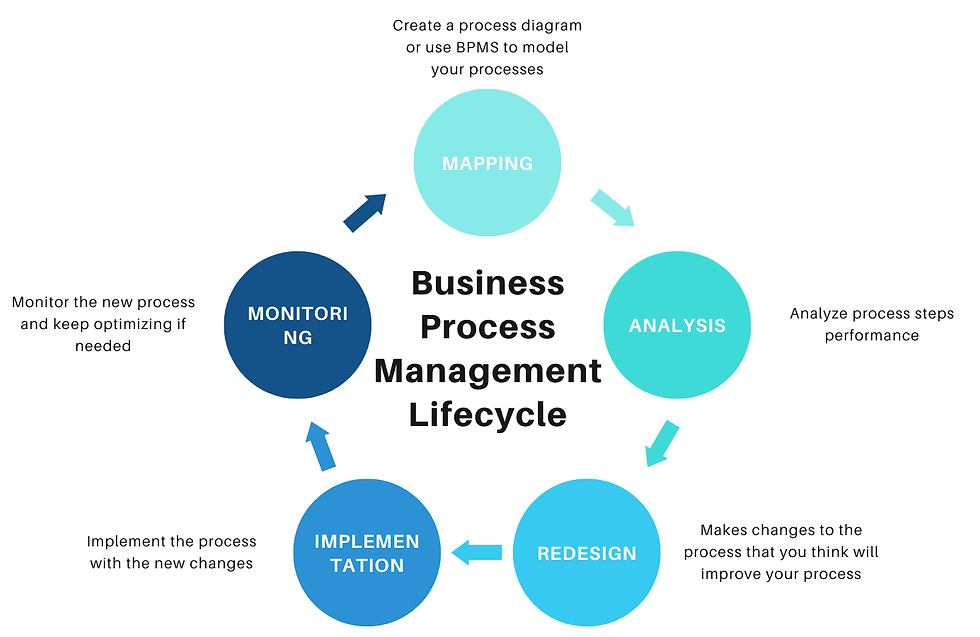Why Business Logic is Essential for Scalable and Agile Software
- sandyarsenaulttech
- Dec 9, 2024
- 4 min read
Introduction
In today's fast-paced digital world, businesses need software that is both scalable and agile to meet the evolving needs of the market. As organizations grow, the complexity of their operations also increases, making it essential for software solutions to handle this growth effectively. This is where business logic plays a pivotal role. Business logic ensures that the software can scale efficiently, adapt to change, and provide value to users. In this blog, we will explore why business logic is essential for creating scalable and agile software and how it helps businesses stay competitive.

What is Business Logic?
Business logic refers to the underlying rules and processes that govern how data is processed, stored, and managed within a software system. It is responsible for defining the workflows, operations, and conditions that allow the software to meet business objectives. Business logic separates the core operations of the business from the user interface and external systems, making it easier to manage, scale, and modify the software without disrupting the overall functionality.
1. Ensures Scalability
Scalability is one of the most critical factors for any growing business. As a company expands, its software must be able to handle a larger volume of users, transactions, and data. Business logic plays a key role in ensuring scalability by enabling the system to manage increasing complexity and load effectively.
For example, an e-commerce platform's business logic could define how customer data is processed and stored, how inventory is managed, and how transactions are validated. As the platform grows, business logic allows the software to efficiently scale by implementing rules that ensure data consistency, load balancing, and efficient resource management.
By keeping the business rules centralized within the software’s architecture, developers can more easily modify and enhance the business logic without affecting other parts of the system. This modular approach helps businesses quickly scale their operations without the risk of breaking existing functionality.
2. Facilitates Agility and Flexibility
Agility is about being able to adapt quickly to changing market conditions, customer needs, or regulatory requirements. Software built with strong business logic is inherently more agile because it allows for rapid adjustments without disrupting the overall system.
For instance, if a business wants to introduce a new product feature, its business logic can be updated to reflect new workflows, validations, or pricing models. Because business logic is separate from other layers of the software (such as the user interface), changes can be made quickly and without fear of affecting other areas.
Moreover, business logic enables organizations to implement various rules or configurations based on specific customer needs or use cases. This flexibility empowers businesses to roll out new features, update processes, and even introduce changes based on customer feedback in an efficient and timely manner.
3. Enhances Consistency and Accuracy
Another crucial aspect of business logic is its ability to ensure consistency and accuracy across the entire system. Since business logic defines how data is processed and validated, it guarantees that rules and workflows are applied uniformly throughout the software.
This consistency is vital for businesses that need to ensure data integrity, especially when handling sensitive information. For example, in a banking application, business logic ensures that transactions are properly validated, customer details are accurately stored, and that no rules are bypassed, leading to fewer errors and inconsistencies.
4. Reduces Development and Maintenance Costs
A well-designed business logic layer can reduce the complexity of software maintenance and future development. Since business logic is separate from the user interface and other components, it can be more easily updated or modified without impacting the overall system.
When business rules are hardcoded into different parts of the software, changes become more complex and costly. By centralizing business logic, developers can modify the core functionality with minimal disruption, reducing the time and cost associated with making changes.
5. Supports Integration and Automation
Business logic also facilitates the integration of various systems and the automation of tasks. Many organizations rely on software that needs to interact with third-party applications, databases, or services. Business logic provides the foundation for handling these integrations by defining how data should flow between different systems and ensuring that the necessary actions are taken at each stage.
For example, if a company wants to automate invoice generation or integrate its software with a payment gateway, business logic dictates the rules for when and how these actions should occur, making the integration seamless and automated.
Conclusion
Business logic is an essential component for building scalable and agile software. By providing the rules and processes that govern data management, it helps businesses scale efficiently, adapt to changes quickly, and maintain consistency across their systems. Furthermore, it enhances the flexibility of software, allowing businesses to introduce new features and adjust workflows with minimal disruption. As businesses continue to grow and evolve, the importance of well-defined business logic will only increase, making it a critical element in the development of modern, high-performance software solutions. SITES WE SUPPORT
SOCIAL LINKS



Comments